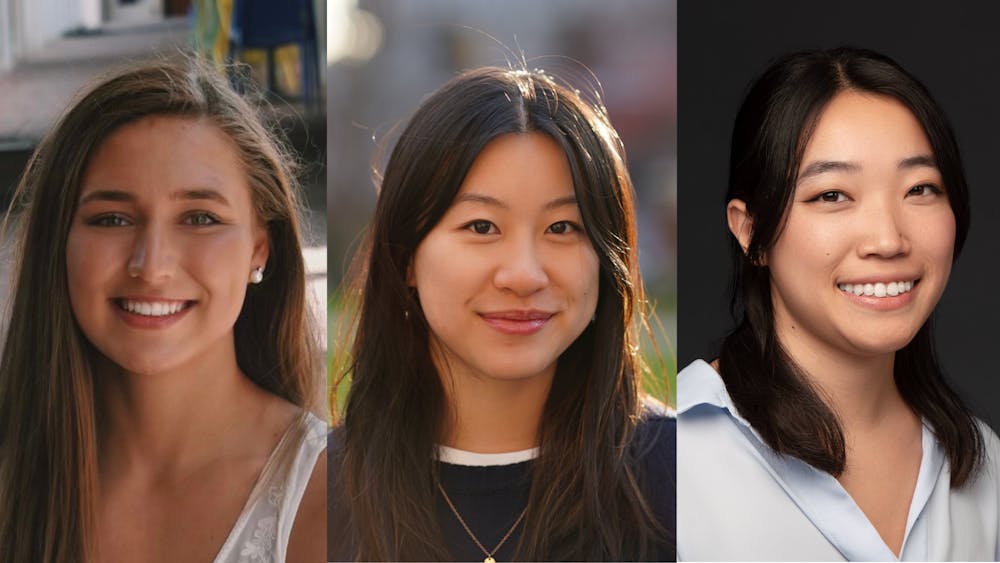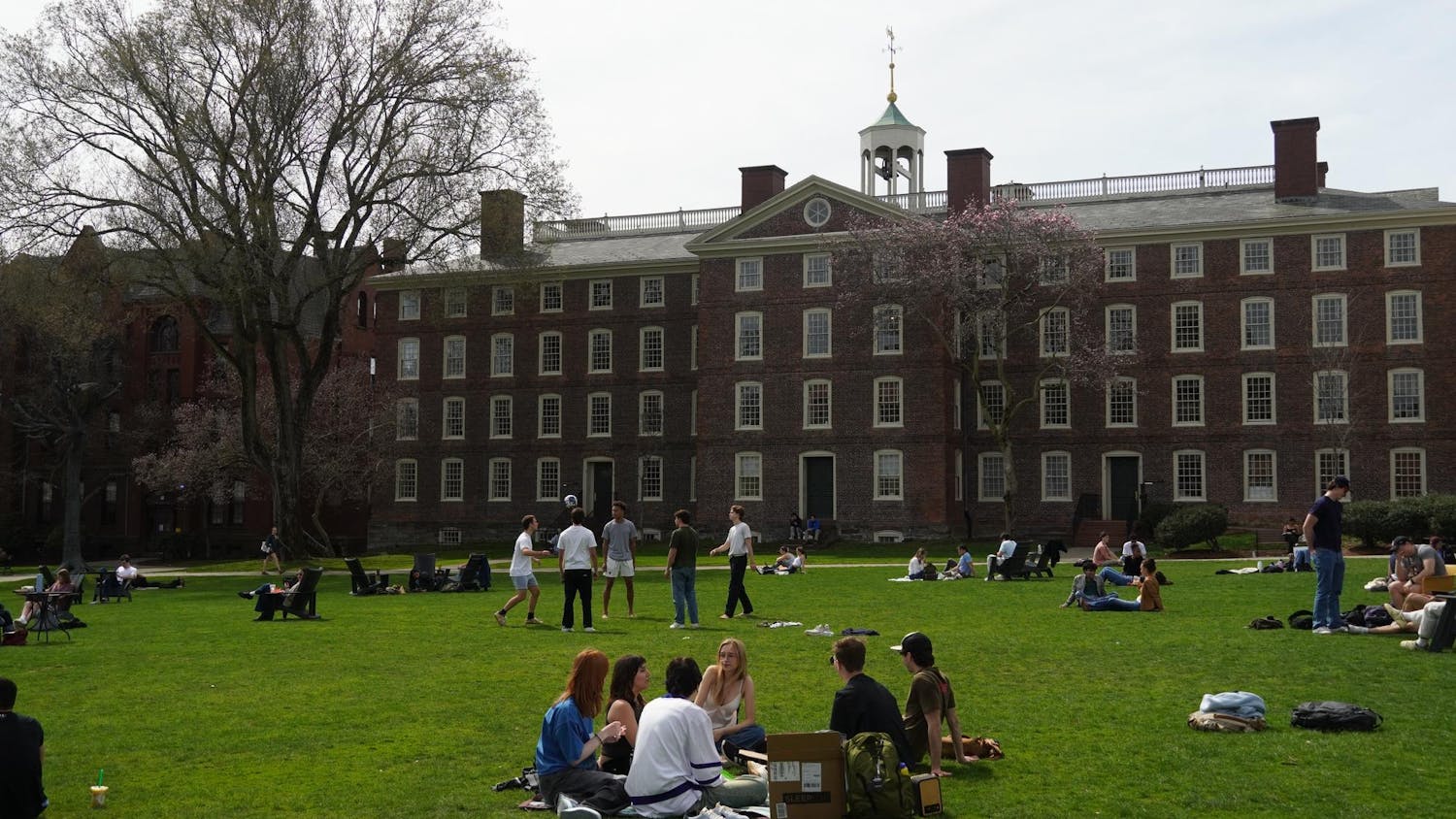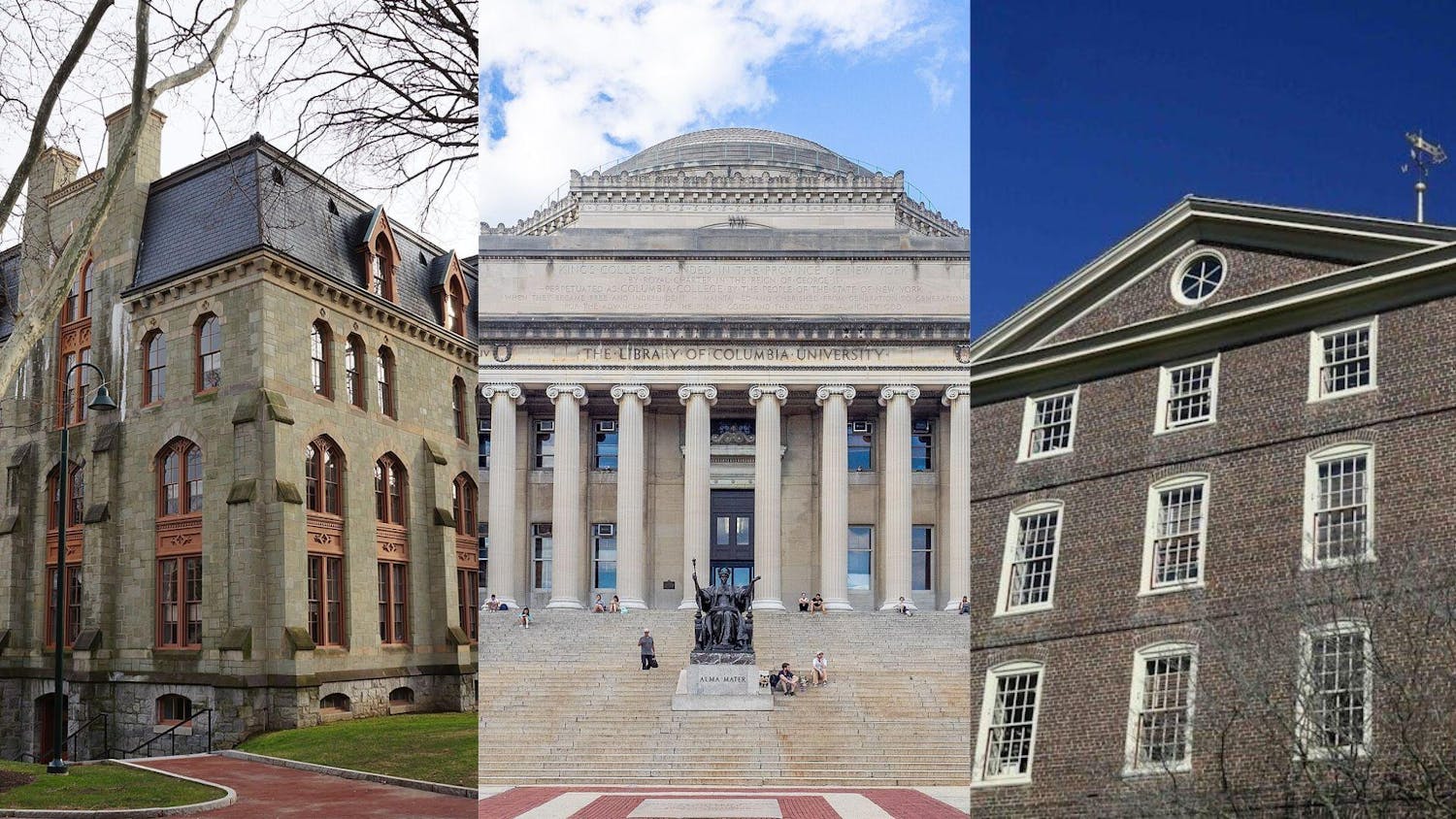Three Brown students were named Barry Goldwater Scholars, an award intended to support college sophomores and juniors with promising futures as researchers in the sciences, mathematics and engineering. Awardees receive a scholarship of $7,500 per year.
This year, 438 winners were chosen to receive the award among a pool of over 5,000 applicants, according to the Goldwater Scholarship’s website.
The Herald spoke with the three Brown awardees about their work — ranging from prosthetic development to cancer therapeutics — as well as reactions to winning the scholarship.
Elizabeth Polydefkis ’25: A bioengineer working towards a more accessible world
As a young child, Elizabeth Polydefkis ’25 knew she wanted to be an engineer while watching her father adapt to life with a progressive neurological condition.
“Seeing the creative adaptations my father has made to his laboratory instruments, gardening tools and sports equipment so that he could work and enjoy his passions was a huge reason why I wanted to become an engineer in the first place,” Polydefkis told The Herald.
Polydefkis grew up watching her father struggle with devices designed without adequate input from customers. Now, Polydefkis studies biomedical engineering in hopes of “enhancing accessibility and independence for individuals with physical disabilities.”
Her research interests led her to work in Johns Hopkins University’s Haptics and Medical Robotics Laboratory over the summer of 2023. Her work focused on improving 3D-printed upper limb prosthetics by adding haptic feedback systems, which allow users to decide the needed amount of force to perform a certain action.
“Persons without tactile sensation or impaired tactile sensation lack the dexterity required to complete daily activities efficiently and accurately,” Polydefkis explained. “The mental energy expended using a prosthesis is exhausting for limb-absent individuals and reduces functionality.”
To address this issue, she investigated “accurate mapping of haptic feedback” for 3D-printed prosthetics.
Polydefkis credited the Brown community with fostering her love for research.
“At Brown, I am surrounded by people conducting amazing research on top of their extracurriculars and academic commitments, so I genuinely was not expecting to win when I applied,” she said.
Clara Tandar ’25: A future physician-scientist engineering better cancer therapeutics
As a bioengineering and International and Public Affairs double concentrator, Clara Tandar ’25 hopes not only to develop new therapeutics but also to translate that research into effective policy action.
“I ultimately want to be a physician-scientist and focus a lot on the therapeutic and patient side of things,” Tandar told The Herald. “But that doesn’t exist in a vacuum. I want to be able to communicate my work to not only experts in the field but also a general audience as well.”
For Tandar, winning the Goldwater was an important affirmation of the path she had chosen to take.
“It’s a nice reminder that what I’m doing can have an impact on patients someday,” she said. “But within the grand scheme of things, it just inspires me to keep pursuing a broad interdisciplinary approach.”
Tandar credited Brown’s environment for encouraging her to take a wide variety of classes, ranging from sociology to a history capstone. “I truly think that I have incorporated all of those classes into how I approach my research interests, even if it’s not so directly obvious or related,” she said.
Tandar’s research merges her interests in cancer biology, nano- and micro-engineering. As a member of Associate Professor of Medical Science, Engineering and Orthopaedics Eric Darling’s lab, she has worked to improve microfluidic devices, which are used to detect cancer from blood samples.
“These devices are really great, but we actually need calibration particles for them,” she explained. “And currently, what we have are polystyrene particles — but they actually don’t mimic the right density, size or stiffness of biological cells.”
Tandar’s research focused on addressing this gap by fabricating microparticles and nanoparticles with more biologically relevant traits. Now, she is working on a new drug development project that uses these microparticles to deliver drugs and eliminate toxins.
Jennifer Wang ’25: A computer scientist integrating ethics into computing
Jennifer Wang ’25 — a double concentrator in computer science and International and Public Affairs — believes computing and policy are inextricably linked.
“I see computing as a tool to reveal the limitations of policy,” she told The Herald. “Technological advancements are breaking the assumptions that our policy is hinged on.”
In particular, Wang highlighted the rapid development of AI technology as one example of the need for policy intervention. She worked at the White House Office of Science and Technology Policy in fall 2023 to research “domestic and international AI policies that uphold our values of equity, as well as legislation that enhances privacy protections,” she said.
Wang told The Herald that “the Goldwater has been a huge affirmation to the value of research at this intersection of policy and tech, especially when academia has traditionally valued depth over breadth.”
Wang worries that the fast pace of technological development will ultimately infringe upon people’s rights.
“Increasingly, there’s been an undermining of our fundamental rights in the digital space because a model is now making a decision instead of a human,” she said. “But that shouldn’t be the case — we need to embed our societal values into technical systems from the very formulation.”
For her Goldwater application, Wang focused on her work in the Reinforcement Learning and Behavior Lab. There, Wang worked on a project that allowed users without a substantial computing background to program robots more easily.
Wang drew on her own childhood experience of learning to code using Scratch, a block-based and highly visual programming language intended for children and other beginner programmers. Inspired by Scratch, Wang built a visual interface that allowed users to build programs for their robots, unburdened by the technical aspects that professional programmers often wrestle with.
Through projects like this, Wang discovered an unparalleled love for research, solidifying her desire to pursue higher education and research jobs.
“Through seemingly insurmountable challenges, research made me confront the limits of my knowledge and taught me that failure is part of the journey of discovery,” she wrote in her Goldwater application. “I cannot imagine a time when I would not relish the thrill of finding a foothold in uncertainty and the joy of making my vision a reality.”
Irene is a freshman from the Washington, D.C. area concentrating in Applied Math and International and Public Affairs. In her free time, she enjoys trying fun new snacks and exploring Providence's parks and shops.





